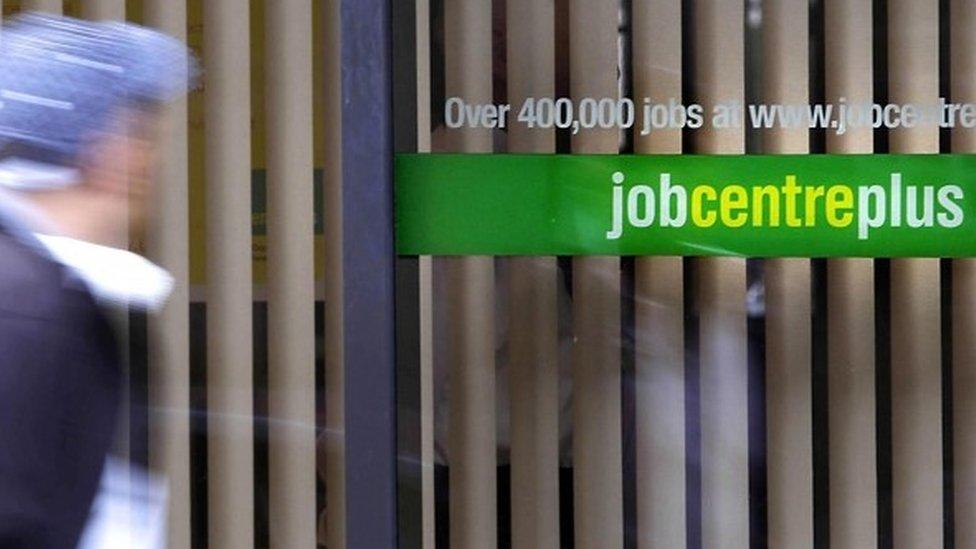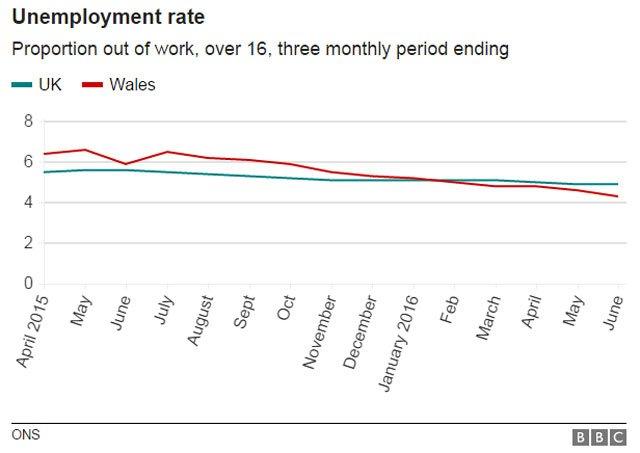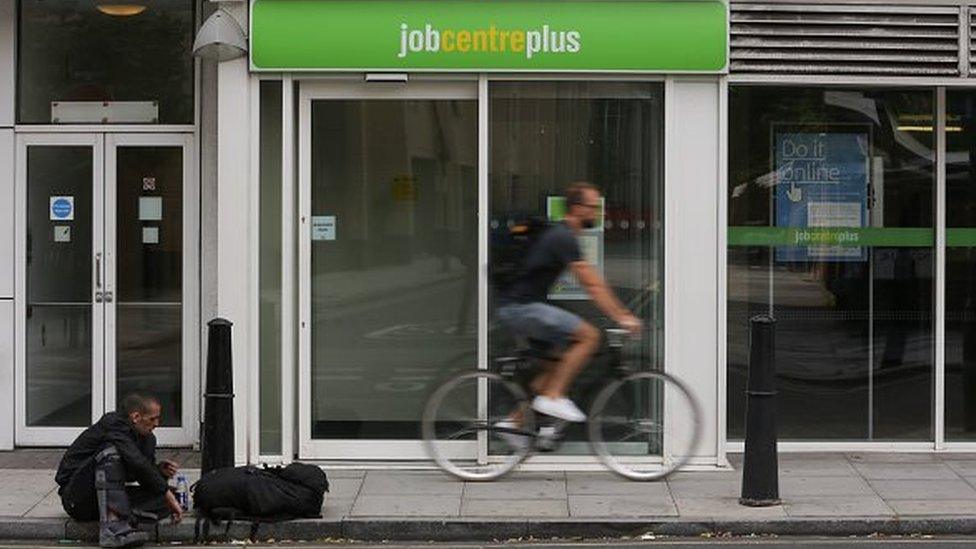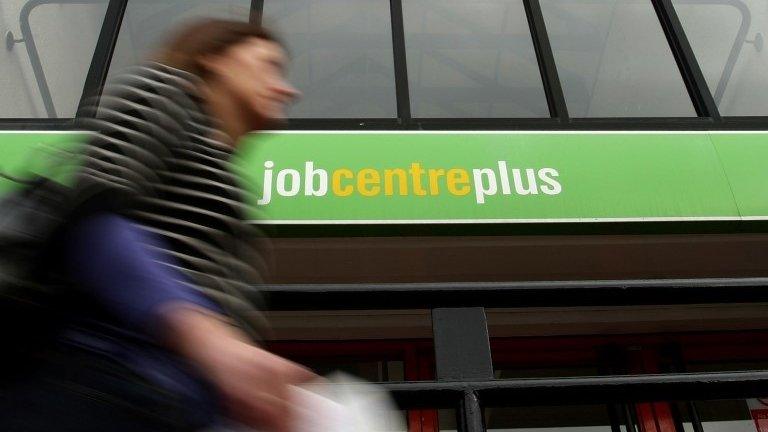Wales' unemployment rate fall 'shows confidence'
- Published

The unemployment rate in Wales has continued to fall after dropping to its lowest level in a decade.
The latest Office for National Statistics (ONS) figures showed 4.3% of people were out of work in Wales in the quarter to June.
It is the fifth successive set of figures where Wales has outstripped the rest of the UK.
The UK's unemployment rate remained at 4.9%, the ONS said., external
Between April and June, there were 65,000 people unemployed - 9,000 fewer out of work in Wales than the previous quarter and 23,000 fewer than the same period in the previous year.
Rob Mason, general manager of Frog Bikes, and worker James Head talk about the new factory in Pontypool
The fall is the largest of all the nations and regions in the UK.
However, there were also 14,000 fewer people employed in Wales than between January and March.
This was still 17,000 more than a year earlier.
The north east of England saw the biggest rise in employment.


Welsh Secretary Alun Cairns said: "The jobs market in Wales has stayed strong over the summer with some of the best figures we have seen in more than a decade."
He said the fall in the unemployment rate represented a "confidence in both recruitment and investment."
First Minister Carwyn Jones said: "As a pro-business government, we are continuing to work hard to support the right economic conditions to help create and safeguard jobs right across Wales.
"Whatever happens around us, we will continue to provide a strong, stable and secure environment for business and enterprise."

Analysis from Sarah Dickins, BBC Wales economics correspondent
The good news for Wales is that the rate of unemployment has continued to fall, whereas it has remained the same across the UK as a whole.
It is the fifth consecutive month that Wales has had lower rates of unemployment than the UK and the gap has widened.
However, it is important to note that the number of people actually in work in Wales between April and June was 14,000 fewer than in the previous three months. That is a concern.
The period counted by the Office for National Statistics covers April May and June 2016.
It was a period of uncertainty in the run up to, and immediate aftermath of, the referendum on membership of the EU. It is still too early to say whether changes in the labour market have or have not been affected by the Brexit vote.
- Published17 August 2016

- Published20 July 2016
